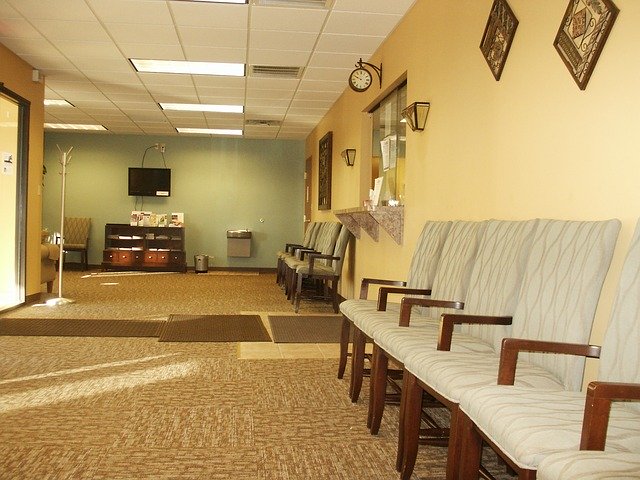Seniors who live with family members, friends, or have frequent visitors are at risk for contracting an illness. With compromised immune systems due to age or existing illness, it’s important to protect seniors from sickness including cold, flu, pneumonia, gastrointestinal infections, and most recently, COVID-19.
The best place to stop the spread of illness is in the home. In a few simple steps you can not only prevent the spread of illness in a home, but boost the immune system and minimize the risk of injury.
Here’s how to Protect Seniors from Sickness
Protecting seniors from getting sick can be the difference between life and death. According to the CDC, it’s estimated that 70-85% of flu-related deaths occur in people over 65 (cdc.gov).
The following table shows some of the staggering figures regarding the # of cases and deaths associated with common illnesses in the United States each year (info from cdc.gov).
| Illness Name | # of Cases | # of Deaths |
|---|---|---|
| Influenza | 36.3 mil | 34,200 |
| Pneumonia | 5.6 mil | 49,157 |
| Common Cold | 62 mil | N/A |
| Staph Infections | 1.2 mil | 20,000 |
Seniors find themselves at risk for all of the above diseases. Some, like Pneumonia, are highly infectious and particularly dangerous.
Keep reading to learn how to protect seniors from sickness in a household with simple and effective measures.
1. Practice Good Hygiene
The simplest way to fight off infection is by keeping clean! The best part? You’re probably doing this anyways.
According to the CDC, hand washing alone can reduce the risk of respiratory infection by 16% and diarrheal disease-associated deaths by up to 50%. Regular hygiene practices like hair washing, showers, face washing, teeth brushing, and changing into clean clothes daily can greatly reduce the risk of infection.
You’ll want to make sure everyone in the household is practicing good hygiene including children and visitors.
Here are 5 of the best hygiene practices for preventing illness:
Wash before and after contact with food, unclean surfaces, and other people (especially when sickness is known or suspected).
Dermatologists recommend to bathe every other day for optimal skin care.
The American Dental Association recommends brushing your teeth twice daily with flouride toothpaste, and cleaning between your teeth at least once per day.
Items like T-shirts, underwear, and tights should be washed after every wear. Other articles like pants and sweaters can be worn several times without washing. If you’ve come in contact with a sick individual or are sick yourself, make sure to wash clothes immediately after wear.
Wash your face after exercise or strenuous activity, as well as in the morning and at night. For those with dry skin, wash once a day before bed.
2. Keep the Place Neat and Clean
Viruses can live on surfaces for weeks or months. In-fact, one CDC study showed that influenza can live on surfaces for up to 48 hours. It’s almost impossible to keep germs from collecting on surfaces, but it’s not that hard to wash them away!
According to a recent article from healthline.com, common bacteria that is found in your home includes Staphylococcus aureus (staph), Salmonella, and Escherichia coli (E. coli).
To prevent seniors from sickness, you’ll have to clean regularly. Items and places that require the most frequent cleaning include:
- Cutting boards
- Coffee Makers
- Refrigerator
- Kitchen sink and countertops
- High-traffic light switches
- Door handles
- Appliance handles and knobs
- Tubs and sinks
- Faucets
- Toilet (and surrounding area)
- Any surfaces shared by multiple family members and visitors (remotes, phones, etc.)
- Pet items and furniture
When washing surfaces, be sure to use warm or hot water and a reliable detergent (those containing bleach are the best at killing bacteria).
Disinfectant wipes and rubbing alcohol are also successful at killing bacteria, and disinfectant sprays are a great way to kill germs on handles, light switches, and lightly used surfaces.
Create a Safe & Happy Environment
Creating a safe environment for your senior loved one is also an important step towards preventing illness and injury. Make sure to keep pathways clear of obstructions like toys and shoes, and trip hazards like ice, water, and pebbles. Refer to our freezing weather safety tips for more advice on this topic.
Also, keeping the domicile neat and organized is shown to reduce or prevent anxiety and depression. These are not only serious mental illnesses, but can contribute to lower immunity and slower recovery rates in the elderly.
3. Be Smart with Your Food
A healthy diet is shown to boost immunity, mood, and overall well-being. The following foods are considered superfoods and great for preventing illness according to an article by elle.com.
Along with eating healthy, make sure to practice proper food storage and cleanup using some of the techniques mentioned in step 2. For more healthy and anti-aging food suggestions, check out our top 8 foods for anti-aging.
4. Avoid Unnecessary Contact

If you are feeling sick, have been around a sick person, or suspect you’ve been exposed to a sick person, it’s best to avoid contact with a senior family member.
For at-risk seniors, especially during flu season and pandemics, it’s important to social distance. This means little-to-no visitors, no unnecessary family gatherings, and limited trips to populated areas (like the grocery store or pharmacy).
For at-risk seniors, especially during flu season and pandemics, it’s important to social distance.
Sometimes we can’t help but come in contact with senior family members while sick. In these cases, protective gear is key to protect seniors from illness.
All individuals, including the elderly individual, should wear gear like medical masks, gloves, and hair coverings to preventing the transfer of diseases.
Here is a great video regarding social distancing to prevent the spread of COVID-19 and other diseases:
5. Be Attentive & Know When to go (to the Doctor)

Perhaps the most important step to prevent illness is closely monitoring your senior family member.
Keeping track of new symptoms, changes in behavior, and medication usage can help catch illness early. Proactive practices like regular checkups and seeking care immediately result in the best prognosis for any sickness, acute or chronic.
Don’t Rush to the Doctor Every Time
While it’s important to be proactive, not every sneeze, cough, or runny noise should result in a trip to the doctor. Waiting at the doctor’s office could actually MAKE a person sick!
A study published in the journal Infection Control and Hospital Epidemiology determined that children experienced flu-like symptoms with a 3.2% higher probability AFTER visiting a doctor for an annual appointment.
During flu season and general outbreaks, it’s best to avoid medical offices and hospitals unless it’s an emergency (high fever, unusual symptoms, severe vomiting or diarhea, etc).
How do I Help a Family Member That is Already Sick?
If a senior family member is already sick, you should continue to practice the 5 steps above as well as consulting a doctor in-person or via tele/video conference.
If you are unable to care for a senior loved one, short term care is an option to consider. Also known as respite care, short term care is offered at assisted living homes across the country for those dealing with acute or chronic illness, post-surgery recovery, and temporary nonavailability of a caretaker.
Sandyside Senior Living
This information was provided by Sandyside Senior Living in White Lake, Michigan. Sandyside specializes in advanced care for seniors with dementia, Parkinson’s and all age-related illness.
Interested in learning more about Sandyside Senior Living? Contact Sandyside online, or call at (248) 698-3700.
To get in touch with Sandyside Senior Living please complete the form below:
VISIT SANDYSIDE SENIOR LIVING TODAY
PHONE: (248) 698-3700








